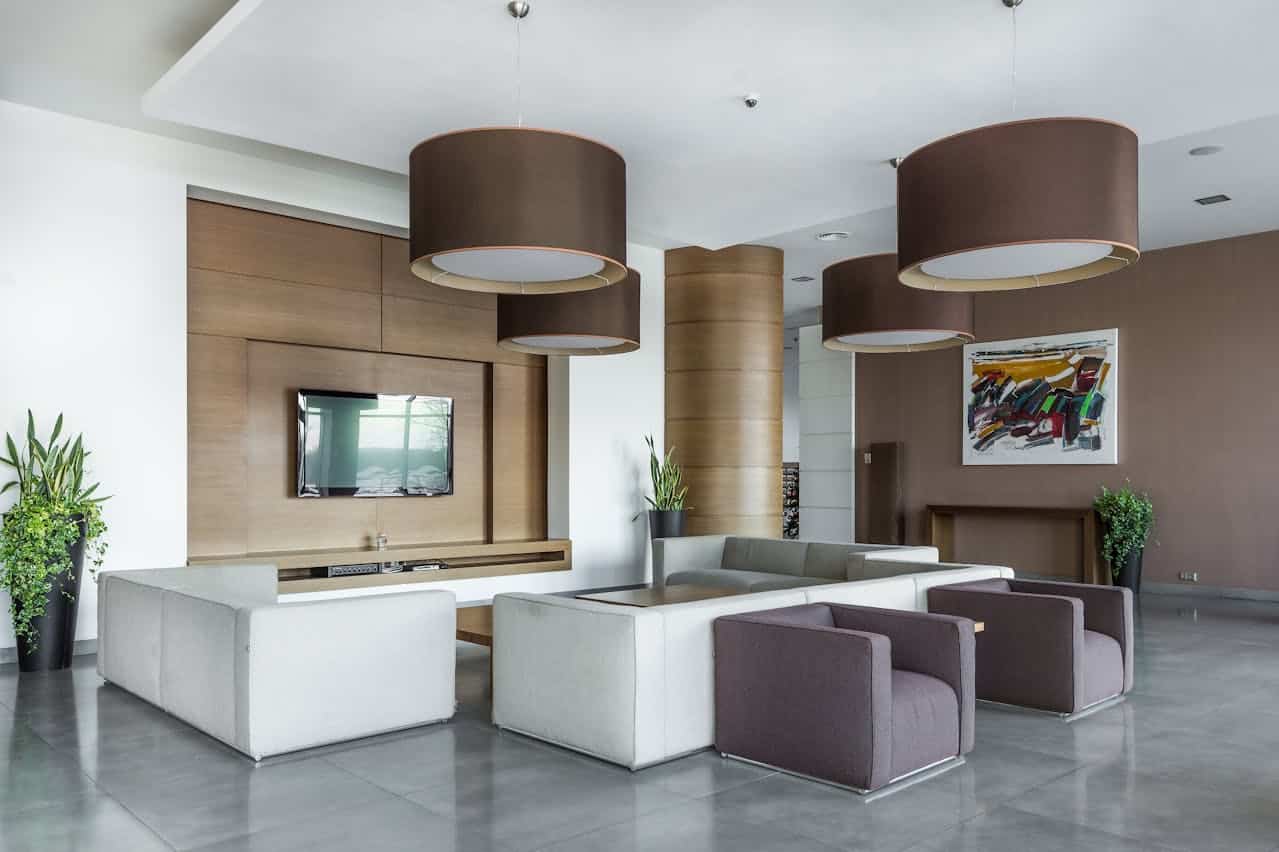When it comes to managing a property, whether it’s a cosy apartment complex or a sprawling real estate empire, there’s one thing that can really throw a wrench in the works: pests and termites. It’s like they say, “An ounce of prevention is worth a pound of cure.” But when we’re juggling the day-to-day, it’s easy to let pest control slide to the back burner—until it’s a full-blown crisis. That’s why we’re diving deep into the world of property management pest and termite control. Stick with me, and you’ll see how tackling this head-on can save you a lot of headaches (and money) down the road.
Understanding Pest and Termite Challenges in Property Management
Let’s start with the basics. Pests and termites aren’t just a minor inconvenience. They can cause serious damage to your property, affect the health and well-being of your tenants, and even dent your reputation. From ants marching one by one into your kitchen, to termites silently chomping away at the structure of your buildings, these unwelcome guests can turn your property management dreams into a nightmare.
The key to managing these critters isn’t just about reacting when they show up; it’s about understanding their behaviour, knowing where they’re most likely to invade, and taking steps to make your property as unwelcoming to them as possible. This might mean regular inspections, sealing up cracks and crevices, and keeping common areas clean and clutter-free. It’s about staying one step ahead, so pests and termites think twice before making your property their home.
Property Management Pest and Termite Control: A Strategic Approach
Adopting a strategic approach to pest and termite control is like putting together a game plan before the big game. You wouldn’t go into a championship without knowing your opponents, right? The same goes for pests. This means not just dealing with pests after they’ve shown up, but putting together a full-fledged strategy that includes prevention, early detection, and effective treatment options.
A big part of this strategy is education—both for you and your tenants. Knowing what attracts pests and how they get in is crucial. For instance, did you know that something as simple as a dripping faucet can attract pests looking for water? Or that cardboard boxes are basically termite buffets? Sharing this kind of information with your tenants can go a long way in preventing pest problems before they start.
Pest Control for Property Preservation
Now, let’s talk about the role of pest control in preserving your property. It’s not just about keeping the place looking nice; it’s about protecting your investment. Termites, for example, can do serious structural damage if left unchecked. We’re talking thousands of dollars in repairs. And it’s not just termites. Rodents can chew through wires, leading to costly electrical repairs, and some pests can even pose health risks to your tenants.
Incorporating regular pest control into your property maintenance routine is essential. It’s like regular check-ups for your property’s health, catching potential problems before they balloon into major issues. This doesn’t just save you money in the long run; it also shows your tenants that you’re committed to providing them with a safe, comfortable home.
Pest Control for Property Rentals and Real Estate

When it comes to rentals and real estate, the appearance and condition of your property can make or break a deal. Nobody wants to move into a place that’s known for its pest problems. That’s why effective pest control is a key selling point. It tells potential tenants or buyers that you care about the details, that you’re proactive about maintenance, and that you’re dedicated to providing a top-notch living experience.
Effective pest control can also be a unique selling proposition in a crowded market. Offering a pest-free living environment can set your properties apart, attracting more tenants and potentially allowing you to command higher rent prices. It’s about adding value to your offerings, making your properties not just a place to live, but a place people are excited to call home.
Integrated Pest Management (IPM) Strategies for Property Management
Integrated Pest Management, or IPM for short, might sound like some highfalutin term, but it’s pretty straightforward when you break it down. Think of it as using your head instead of just brute force to deal with pests. It’s about being smart—using a combination of methods that are not only effective but also environmentally friendly and safe for your tenants.
IPM involves a few steps: First, you’ve got to know your enemy. What pests are you dealing with? What do they like, and where do they hang out? Next, you take steps to keep them out in the first place. This could mean anything from fixing leaks (pests love moisture) to sealing up cracks and crevices where they might enter. Then, if pests still make their way in, you use the most effective and least harmful methods to deal with them, reserving chemical treatments as a last resort.
The beauty of IPM is that it’s not just a one-and-done deal. It’s ongoing, keeping your property as unattractive to pests as possible and dealing with any that show up in the most sensible way. And let’s be real, showing your tenants that you’re committed to safe and sustainable pest control methods? That’s a big win.
The Role of Professional Pest Control Services
Now, you might be thinking, “Can’t I just handle this pest thing on my own?” And sure, for the small stuff, maybe you can. But for the big leagues—termites, bed bugs, or an army of ants—it’s time to call in the pros. Professional pest control services have the know-how, the equipment, and the experience to tackle your pest problems effectively and safely.
Choosing the right pest control partner is key. You want someone who understands the specific challenges of managing pests in rental properties and real estates. They should be up-to-date on the latest methods and technologies and, of course, licensed and reputable. A good pest control service doesn’t just treat the problem; they’re part of your overall IPM strategy, helping with prevention, education, and maintenance.
Technological Advancements in Pest Control
Speaking of technology, it’s changing the game in pest control, just like it’s changing everything else. Remember the Pest ID software mentioned in the Pest Share guide? Tools like that are making it easier to identify and deal with pest problems quickly and accurately. No more guessing what’s chewing through your wiring or leaving droppings in the pantry. With a few clicks, you can know what you’re dealing with and the best way to handle it.
Technology also means better, safer pest control methods. We’re talking about treatments that target pests without putting tenants or the environment at risk. Plus, with digital tracking and reporting, you can keep a closer eye on pest activity, spot trends, and nip potential problems in the bud before they become infestations.
Pest Control as an Amenity in Rental Business Plans (RBP)
Now, here’s an idea that’s really catching on: including pest control as part of your rental offering. Imagine being able to tell potential tenants, “Pest control? We’ve got it covered.” It’s a powerful selling point. For tenants, it means one less thing to worry about, no out-of-pocket costs for pest treatments, and the peace of mind knowing that their home is protected from pests.
For property managers and owners, offering pest control as an amenity can set your properties apart, attract and retain tenants, and even create an additional revenue stream. It’s about adding value, not just to your properties but to your tenants’ lives. And in a competitive rental market, those added perks can really make a difference.
Legal and Health Considerations in Pest Management
Nobody likes to think about the legal mumbo jumbo, but when it comes to pests, there’s more at stake than just the annoyance factor. Depending on where your property is located, there could be laws and regulations that require you to keep your property pest-free. Not doing so could land you in hot water, legally speaking. But beyond that, it’s about the well-being of your tenants. Pests aren’t just creepy; they can be downright dangerous, spreading diseases and causing health issues.
This is where the importance of having a solid pest control plan comes into play. It’s not just about avoiding fines or legal issues; it’s about ensuring your property is a safe, healthy place to live. And let’s be honest, a property known for its pest problems isn’t going to be topping any “Best Places to Live” lists.
Communication and Documentation
Clear communication with your tenants about your pest control efforts can make a huge difference. Let them know what steps you’re taking to keep pests at bay and what they can do to help. After all, pest control is a team sport. It’s also important to keep them in the loop about any treatments or inspections that are happening. Nobody likes surprises, especially when it involves something as sensitive as pest control.
Then there’s documentation. Keeping records of inspections, treatments, and any pest-related issues that arise isn’t just about covering your bases legally; it’s also about being able to track what’s working and what isn’t. It helps you refine your pest control strategy over time, making it more effective. And if a tenant or legal authority ever questions your pest control efforts, you’ve got the documentation to back up your actions.
Conclusion: Elevating Property Management with Effective Pest Control
So, there you have it—a complete guide to navigating the world of pest and termite control in property management. From understanding the threats to implementing integrated pest management strategies, leveraging technology, and ensuring legal and health standards are met, it’s clear that effective pest control is about more than just dealing with bugs and rodents. It’s about creating a safe, comfortable environment for your tenants, protecting your investment, and setting your properties apart in a competitive market.
Remember, keeping your properties pest-free is a journey, not a sprint. It requires ongoing effort, but with the right strategies in place, it’s definitely achievable. And hey, if you ever feel like it’s too much to handle on your own, there are professionals out there who can help you keep your properties in tip-top shape.
Ready to step up your property management game and make pests a thing of the past? Let’s get to it! Because when it comes down to it, a happy tenant means a happy property manager.





